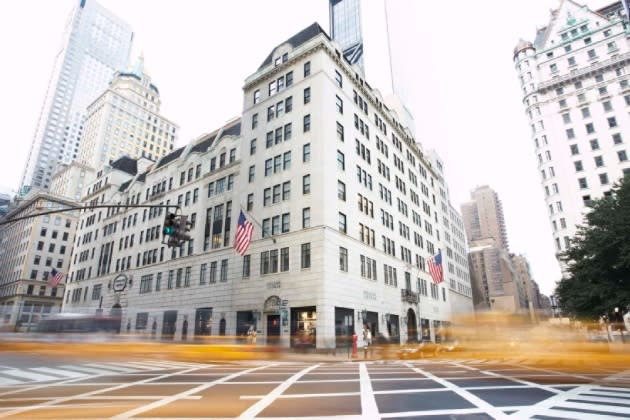Bergdorf’s Launches a ‘Conscious Closet’

Bergdorf Goodman wants to help customers extend the life of their luxury items and support the circular economy.
The luxury retailer has launched a five-part program called “Conscious Closet,” which is described as focusing on “edit, repair, alter, resell and give back.”
More from WWD
As part of the program, Bergdorf’s for the first time is partnering with Fashionphile, the resale platform for buying and selling pre-owned luxury fashion and accessories. Bergdorf’s personal shoppers will be able to sell their clients’ past luxury purchases in exchange for BG gift cards.
In 2019, the Neiman Marcus Group, the parent company of Bergdorf’s, took a minority equity stake in Fashionphile, becoming the first major luxury retailer to directly invest in the fast-growing preowned sector. Several Neiman Marcus stores house Fashionphile drop-off sites for reselling luxury fashion; however, Bergdorf’s will be utilizing the Fashionphile location in Manhattan. Fashionphile also authenticates luxury items.
The program has a donation element, too. Bergdorf’s, as well as Neiman’s, has partnered with Give Back Box whereby customers can have their “gently used” clothing, shoes, accessories and jewelry sent to local participating charities.
The Conscious Closet program starts with a consultation with a Bergdorf Goodman stylist who will review what’s inside a customer’s closet and suggest what should be edited out, repaired, altered or resold.
To prolong the life of shoes and handbags, Bergdorf’s is a partner with Santana Leather Care, which offers resoling, stretching, re-dyeing, refinishing and cleaning leather; cleaning and replacing linings, and replacing hardware. Bergdorf’s also has an on-site atelier for alterations ranging from a simple hem to some complicated tailoring.
Bergdorf executives consider Conscious Closet as complementary of their “Conscious Curation” program, promoting exclusive ethical and sustainable items from a variety of fashion and beauty brands, among them Gabriela Hearst, Studio 189 and Irene Forte.
The Neiman Marcus Group, as part of its environmental, social and governance strategy, has made a commitment to extend the life of 1 million luxury items through circular services by 2025. The Conscious Closet will help reach that goal.
“We just had a client last week that wanted to remove a collar off of her Dior shirt. And you know, she fell in love with it even more,” Melissa Xides, Bergdorf’s chief retail officer, told WWD. “And so in that regard, we’re extending the life of the garment.”
According to Xides, the motivation for launching Conscious Closet began with Bergdorf’s personal shoppers, who have a history of building close relationships with their clients and visiting their homes to check out their wardrobes. Bergdorf’s has dozens of personal shoppers but declined to specify the number.
“It’s a very personal experience when you’re walking into someone’s closet, and evaluating it,” Xides said. “They learn very quickly what services matter to our clients. But in the past, it’s a little bit clunky for our personal shoppers to provide some of these services. The Conscious Closet allows us to streamline it and is our way of showing up in regard to circularity and a way to scale it.…We could be altering a $20,000 dress or repairing a very expensive leather bag and refinishing it and dyeing it. The client does not want to lose the value in the garment or the handbag.”
Asked about the costs to the consumer when utilizing the Conscious Closet, Xides replied, “It really depends on the relationship we have with the client. If it’s a long-standing client, some services come complimentary. With a newer client the cost would be based on what’s involved in the alteration or change.”
Last April, Selfridges launched an initiative to encourage customers to eschew the new and shop secondhand, swap their old clothing, and embrace repairs and upcycling through a storewide takeover running through August called Worn Again. Unlike Selfridge’s themed takeovers of the past, Worn Again is about highlighting old products rather than new ones, and urging customers to rethink their wardrobes, how they shop, and whether they can extend the life of their favorite things. The initiative is happening at the Selfridges stores in London, Manchester and Birmingham, and online.
Best of WWD
